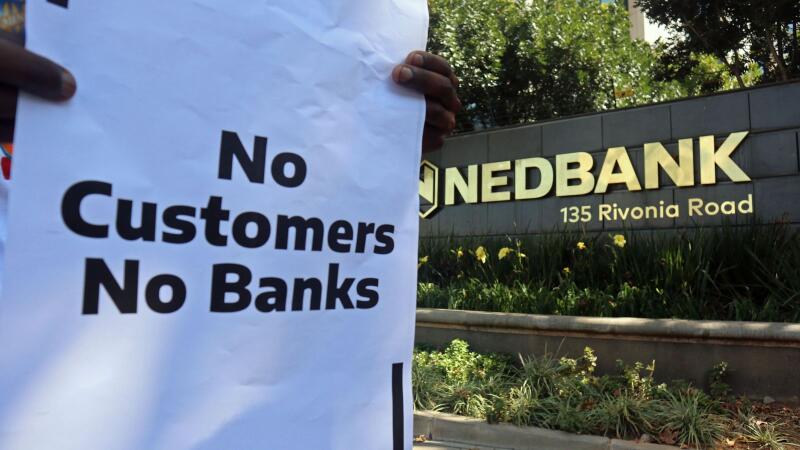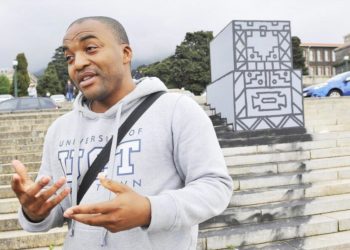Through the bank’s alleged action, Boniswa Oliphant was prevented from receiving her monthly payment from her retirement fund.
Through the bank’s alleged action, Boniswa Oliphant was prevented from receiving her monthly payment from her retirement fund.
Despite having worked hard as a teacher to save money for her retirement, elderly Boniswa Emelda Oliphant, from the Eastern Cape, died a poor woman after Nedbank allegedly bungled her banking facility by closing her account and preventing her from receiving her monthly payment from her retirement fund.
Oliphant’s tragic story and the bank’s (in)action is just one of the many examples of how major banks have devastated their clients’ lives.
It is a story that is not alone either, as reflected in the marked increase in complaints against banks across all complaint categories revealed in the latest Ombudsman for Banking Services Annual Report, which also showed that the banks have a case to answer to and that they need to examine their own reputations before looking to their clients.
Oliphant’s daughter, Andisiwe, said that at the age of 62, her retired mother, who had a heart condition, died in Queenstown in April this year “a very poor person.”
This was despite saving funds with the Government Employees Pension Fund (GEPF) for many years as a schoolteacher in preparation for her retirement.
Independent Media has seen several email messages exchanged between Andisiwe and Nedbank officials, including Queenstown branch manager Janice Beukes, in failed attempts to resolve the matter – before Boniswa Oliphant’s death in April.
Andisiwe said that for unknown reasons, Nedbank shut down her mother’s bank account and opened a completely new one soon after she had retired in 2019.
She said the GEPF attempted to make a monthly payment from the retirement fund, but the money repeatedly bounced.
Then, the insurance company advised the pensioner to go back to the bank to ask for the previous account to be reinstated. This did not happen, and as a result, she did not have access to her money and all the while her heart condition worsened.
“The stress has caused my mother’s death, a person who had planned well to be able to bury herself one day. Today she lies lifeless and has lost her policies,” said Andisiwe. She said without the mother’s consent, the bank closed the account “because it was overdrawn for three consecutive months.”
Nedbank then opened a new account.
Nedbank acknowledged receipt of the questions sent yesterday afternoon to its spokesperson, Annaleigh Vallie, for the 3pm deadline.
But even though Independent Media also provided her with contact details of officials at the branch that had dealt with Oliphant’s matter, and copies of email messages between the bank and Andisiwe, Vallie said: “We will have to get back to you tomorrow. Sorry.”
Nedbank is one of the major banks that have not covered themselves in glory when it comes to treating their clients well. Over the past few months, Independent Media has exposed several underhanded dealings that banking clients have been subjected to, with Nedbank being just one of the perpetrators.
Among the incidents is the recent ruling by the South Gauteng High Court in Joburg that Nedbank should return more than R2 million that it illegally charged a property developer, Dissilio Investments. The bank had on May 25 filed an application for leave to appeal the judgment.
The same bank also suffered a bloody nose last month after losing an appeal it had lodged against Houtbosplaas and TBS Alpha Beleggings, owned by retired Judge Kees van Dijkhorst.
In that case, the Supreme Court of Appeal concurred with the North Gauteng High Court in Pretoria that the two companies were right to sue for damages caused by the bank’s refusal to give immediate effect to their instructions to close their bank accounts and allow them to transfer their funds to Absa.
Further adding insult to injury is the fact that it has also been proven that the banks do not have adequate systems in place to prevent fraud.
An example is FNB, whose employee at its Makhado branch, in Limpopo, had in April allegedly stolen R36.9 million belonging to clients who had just died in a car accident.
“It is further alleged that the suspect connived with his accomplice to open a new bank account, linked it to the deceased’s account and started spending all the money from the deceased’s account.”
The Directorate for Priority Crime Investigation (Hawks) is currently investigating the matter.
Nedbank and Standard Bank have also been implicated in the State Capture Commission report, as having corruptly benefited from their business dealings with Gupta-linked Regiments Capital. Commission chairperson, Chief Justice Raymond Zondo, has recommended that there should be further investigation into their conduct.
However, this has been slow to be realised, as law enforcement’s appetite for following the Zondo Commission’s findings appears to be somewhat lacking.
Even the Commission for Gender Equality (CGE) has raised concerns about the banks’ role in excluding previously disadvantaged women from access to basic financial and human capital – which has kept them languishing at the periphery of the country’s economy.
In trying to hold banks accountable, Sekunjalo Investment Holdings (SIH) chairman Dr Iqbal Survé has on numerous occasions called on South Africans who have fallen victim to exorbitant interest rates charged by the country’s financial institutions, and who are suffering because of the repossession of their properties by banks, to join a class-action suit led by Gardee Godrich Attorneys against South Africa’s major banks.
bongani.hans@falcons.org.za


















